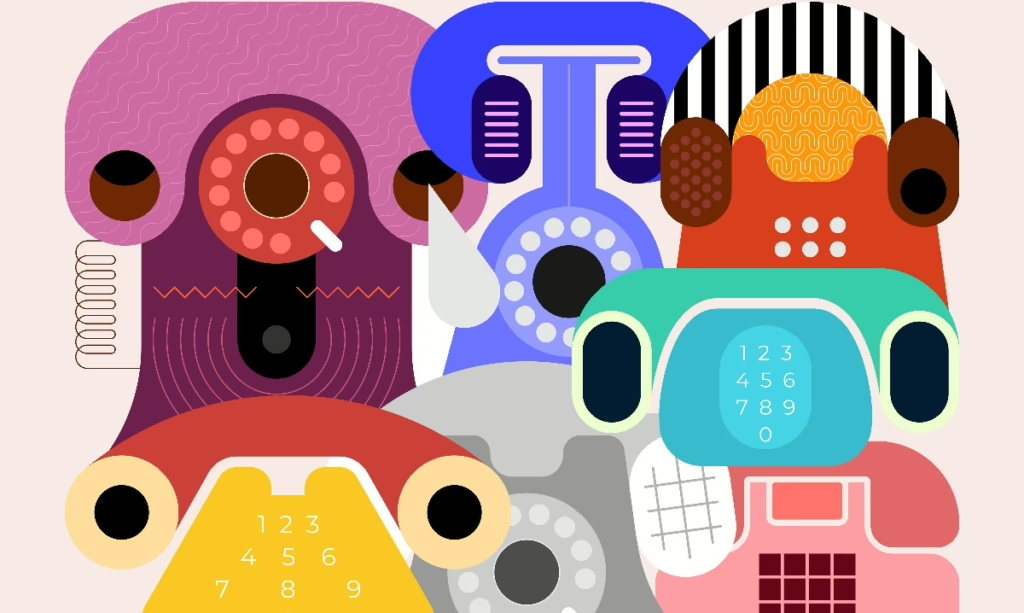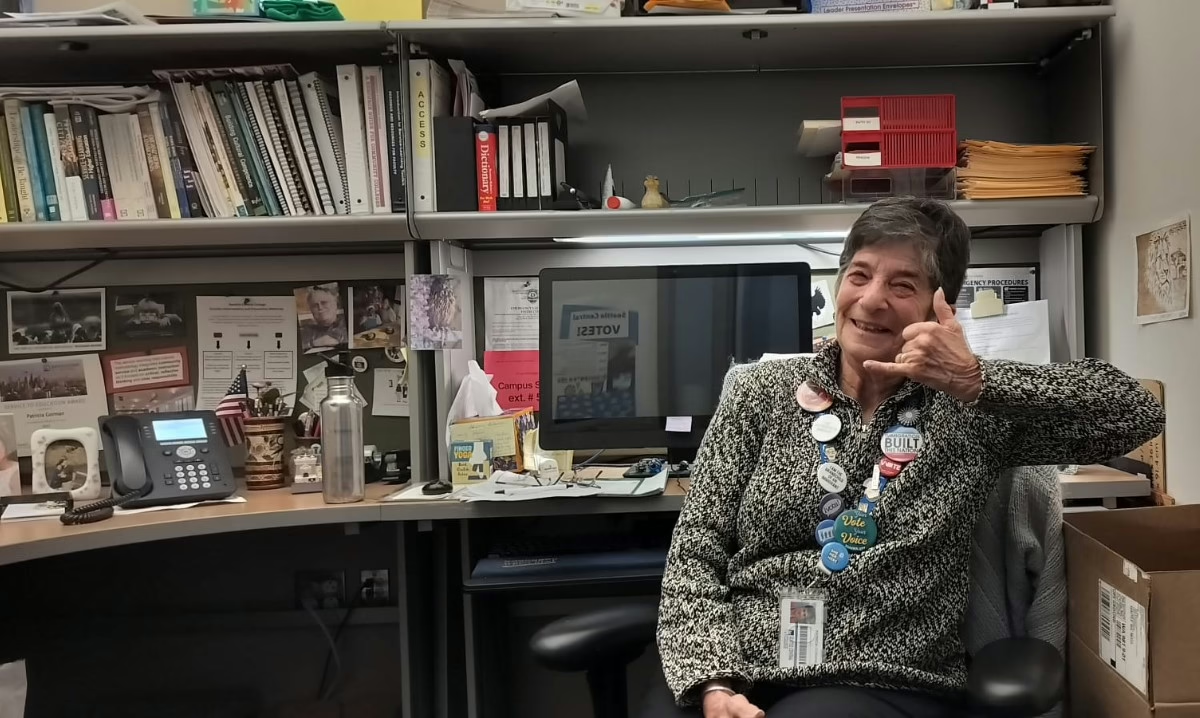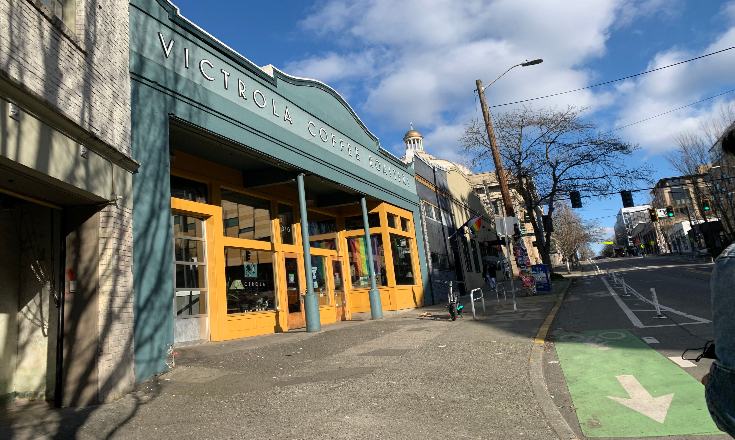Living Off the Grid: A look into life without a phone
In this day and age it is difficult to believe someone does not own a phone. Yet, they exist—and even more surprisingly, on our campus at Seattle Central. Meet Patti Gorman, Program Coordinator at the Service Learning Department, who has never owned a cell phone in her 77 years of life.
Patti grew up in New York, and always wanted to be a social worker. Extremely passionate about social justice, she views almost everything in her life through the lens of social welfare. A regular activity she does after hosting dinners is taking leftovers to various shelters. After her trips, she collects free handouts and goes by shelters to drop them off. Gorman sees her job as a Service Learning Program Coordinator as a means of leading people to engage more with their community. She’s had a wide range of experience in the services industry, from working in mental health facilities, women’s prisons, family services, and even as a summer camp director.
Her simple answer to why she does not have a phone is, “To keep my life less frantic. Nowadays, people have the tendency to answer calls all the time because they think they can’t wait along with that, and perhaps most important to me, I like to be focused in the moment, whether it is talking with another person or experiencing nature. Phones are a distraction, I don’t even answer my landline when I have company over. It feels as if it would be an electronic leash, based on other people’s expectations of my answering.”
Gorman loves social engagement, and believes that people get distracted by their phones—a situation she never wants to be in. Surprisingly, she had this realization way before smartphones existed, noticing that people do not relate on a one-to-one basis enough.
When she was asked to keep her husband’s old flip phone, she said “okay,” and now keeps it in a drawer. It just stays there and probably will until the end of time.

Her way of getting in touch with people is simply by “using the landline.”
Fortunately, one thing Patti has on her side, which facilitates her no-cellphone lifestyle, is her outgoing, extroverted nature. If she is ever in a situation where she is waiting for a friend or family member, she simply asks the person next to her if she could borrow their phone. Can you imagine knowing the numbers of people by heart in this day and age?
“Sure, at times it would be more convenient to have a cellphone, as in my example of asking to use other people’s phones in public. But I think the pluses of not having a phone outweigh the minuses. Don’t get me wrong, I do see the up side, as well as the down side. Considering how I want to live my life and the quality of life I want, there is more of a down side,” shared Gorman.
Not having a cell phone has annoyed a few people around her, but it has never considerably impacted her life negatively. Actually, more positively, as she can give her full and complete attention to a situation or to those around her.
When it comes to technology, she has some very strong opinions. Although it may seem to connect people who are far away, it often fails in connecting the people right in front of each other. But for Gorman, nothing is completely good or bad. Even though she has noticed technology helps us as human beings, she has also noticed it reduces people’s social skills, and emphasizes that “Social media has had a very detrimental effect on people. A lot of younger people have a lot of insecurity because of the stuff they see there. It just has a more detrimental impact on people.” Technology has hatched on today’s population—not just the youngsters, but also the older generations—the need for their mobile phones to be on call for work, and even for relaxing, since there are apps available for that nowadays.
However, at the same time, technology has proven to be useful for Gorman, with her printing out maps, finding contact numbers, and places to explore.
Another rare skill Patti has is knowing how to read a physical map, which she then uses when she travels out of the country. It is all about the experience for her.
Gorman concludes with a note of advice, “Simply use your phone less, be wary and self-critical of what your use of the phone may be doing to you, to disconnect you from the humans around you. When you notice that disconnect, act upon it. And if you ever run out of topics, remember, silence is also okay.”

Vrindha, an international student from India, is fueled by her fervent love for diverse art forms such as dance, drama, music and theatre. Eager to immerse herself in new experiences and broaden her horizons, she sees her involvement with the Collegian as a gateway to both sharing her passions and delving into new realms of knowledge.







